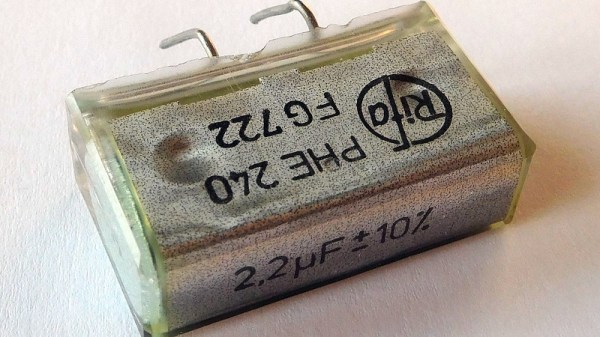When you first get your hands on an old piece of equipment, regardless of whether it’s an old PC or some lab equipment, there is often the temptation to stick a power lead into it and see what the happy electrons make it do. Although often this will work out fine, there are many reasons why this is a terrible idea. As many people have found out by now, you can be met by the wonderful smell of a Rifa capacitor blowing smoke in the power supply, or by fascinatingly dangly damaged power wires, as the [Retro Hack Shack] on YouTube found recently in an old Gateway PC.
Fortunately, this video is a public service announcement and a demonstration of why you should always follow the sage advice of “Don’t turn it on, take it apart”. Inside this Gateway 2000 PC from 1999 lurked a cut audio cable, which wasn’t terribly concerning. The problem was also a Molex connector that had at some point been violently ripped off, leaving exposed wiring inside the case. The connector and the rest of the wiring were still found in the HDD.
Other wires were also damaged, making it clear that the previous owner had tried and failed to remove some connectors, including the front panel I/O wiring. Thankfully, this PC was first torn apart so that the damage could be repaired, but it shows just how easily a ‘quick power-on check’ can turn into something very unpleasant and smelly.
Continue reading “Don’t Turn That Old System On, First Take It Apart”












